Heat Pump vs Furnace/AC
Basic Question: Do heat pumps really work as well as a gas furnace and AC unit?
Background info:
I need to repair/replace one of my furnaces and one of my AC units (AC was weak this summer & I think it has a freon leak, furnace has a crack developing on the heat exchanger). I've had two guys out to the house to give me estimates. They both mentioned heat pumps. Why???? I had a house in Virginia that had a heat pump and it was a horrible unit. I'm now in St. Louis, Missouri. So my question to this forum is - do heat pumps really work just as well as a furnace/AC unit and I just had a bad unit in VA or is a furnace/AC unit better?
We keep our house in the upper 70's (78-80) in the summer and 65-68 in the winter. Not because we can't afford higher utility bills but I'm trying to be energy conscious. Plus we just moved from houston so we're use to being hot (80 is still cool to us as long as the humidity is reduced).
thanks for any info!!!!
Comments (37)
tigerdunes
17 years agolast modified: 9 years agoval,
First of all, you should know your electric rates and also inquire if your utility offers any special rate for electric heat. My idea is that a rate of not more than $.10/kwh makes a heat pump worth considering.
Today's heat pumps are vastly different from those of yesteryear. They produce supply heat in the low to mid 90s.
Sizing of course is important and you should insist upon a manual J heat/cool load calculation and have a complete ductwork inspection that includes size, supply/return balance, insulation properties, leakage check,overall condition. Let your dealer know of any hot/cold spots that could imdicate airflow issues.I personally think Trane/AmStd make the best heat pumps but Carrier/Bryant have the best complete system with their Infinity/Evolution controls. If you elect a heat pump system, then definitely get a var speed air handler.
A heat pump system would work great for your area/climate.
IMO
baldloonie
17 years agolast modified: 9 years agoYou are a perfect candidate for dual fuel, the new buzzword hybrid heat. Gas furnace for cold weather, heat pump for mild weather. We're just up I70 from you, can save up to $200 a winter over gas furnace alone.
Related Professionals
Belleville Solar Energy Systems · Dana Point Solar Energy Systems · Norton Solar Energy Systems · Peabody Solar Energy Systems · Tustin Solar Energy Systems · Selma Solar Energy Systems · Framingham Center Home Automation & Home Media · Inglewood Home Automation & Home Media · Libertyville Home Automation & Home Media · Tacoma Home Automation & Home Media · Shawnee Fireplaces · Channelview Fireplaces · League City Fireplaces · Simi Valley Fireplaces · Atascocita Fireplacesdemetrius
17 years agolast modified: 9 years agoSince you intend to replace the old air conditioning system anyway, the only question is the difference between the cost of air conditioning only and of the heat pump (which will also supply cooling in the summer)
In my case, the difference in cost between a 2 ton heat pump and a 2 ton air-conditioning-only system, including special thermostat, was $1,200 Canadian or approximately $1,000 U.S.
The higher cost of the heat pump will be recouped rapidly and in the future, you'll have the option of chosing between the heat pump and gas furnace depending on the relative fluctuating costs of gas vs. electricity.demetrius
17 years agolast modified: 9 years agoRelative cost of fuel and equipment efficiencies are very important.
The question of comfort is also important.
If you find that the heat pump gives you 'cold' heat, you can shift to gas heat during colder weather.
If you have gas only and gas prices rise significantly above electricity prices You'll be stuck with the gas furnace.The following is a response to a post I recently put on another board. It gives relative costs of heat pump and gas furnace operation for a particular case. It deals with setting a heat pump balance point but the cost comparisons are evident.
--------------------
Could one of you pros help me determing the economic balance point for my new heatpump/gas furnace setup?? I'm not sure what info you need so I'll just throw stuff out...Cost of electricity 8.77/kwh
Cost of natural gas $1.37/therm
Furnace is a 80% AFUE V/S two stage
Heatpump is 13 seer single stage
I live in AtlantaAlso, is there any concensus (using the IAQ9000) as to where to set the compressor cut-off temperature and the Aux cut-off temp.
Thanks in advance.
Larry Smith
--------------------------------------------------------------------------------I'm not a pro but the calculation is straightforward.
All types of energy can be converted from one form to another.
In this calculation I'll express electric energy in terms of THERMS.from: http://www.onlineconversion.com/energy.htm
1 U.S. therm = 29.3kwh
Cost of 1 therm of electricity delivered by utility =
= $0.0877 x 29.3 = $2.57/thermCOST OF HEAT ENERGY SUPPLIED BY HEAT PUMP
The output of a heat pump is higher than the electric energy supplied to it. This is expressed by the coefficient of performance (COP). The COP is higher at 'warmer' outdoor temperatures and drops as the outdoor temperature drops. The heating design outdoor temperature for Atlanta is 22*F and at that temperature the COP is approximately 2.5.
This means that for every unit of energy supplied to the heat pump, the heat pump supplies 2.5 times of heat energy to the house.Cost of 1 therm of heat energy supplied to the house by the heat pump = $2.57/2.5 = $1.028/therm.
COST OF GAS ENERGY SUPPLIED BY FURNACE
The furnace is 80% efficient
Cost of 1 therm of heat produced by the gas furnace =
=$1.37/0.8 = $1.7125/thermSUMMARY
Cost of heat pump heat at 22*F design temp. = $1.028/therm
Cost of gas furnace heat = $1.71/thermNOTE: The above calculations are based on the costs you supplied. The costs must include all charges such as fixed monthly charges, delivery charges, taxes, etc...
Based on the costs of energy you gave, the balance point should be based on 'comfort' or 'equipment capability' and not on 'economics'
don21
17 years agolast modified: 9 years agoNumbers can prove (or disprove) almost any 'theory' - If you go with a heatpump to use during 22 degree winters, I would certainly recommend some other source of engergy for the colder days
A heat pump which can deliver 2.5 times more heat than the energy it uses in 22 degree oustide air is quite a machine! Anyone who would compare such a sophisticated heat pump to a lowly 80% efficient gas furnace has an agenda he's trying to support, because the sort of fellow who would consider buying such a heat pump wouldn't even look twice at an 80% efficient furnace . . . . my $1064 furnace purchase is 93% efficient and there are some even better than mine for just a few dollars more
But, whatever warms your toesies! - I've met more than one person who thought a heat pump would be cheaper than gas even down here in the deep south were we almost never see freezing temps and their power bills have left them wishing they had made another choice. Mechanical refrigeration does a pretty good job when the outside temp is 95 and you want to make the inside 75, (a 20 degree change) but when the outside temp is 25 and you want to make the inside 75, (a 50 degree change) they don't do nearly as well - You'll need lots more capacity to heat with it than you will to cool with the same unit
We all make good choices and bad, but for the kind of money you'd spend here, I would do a lot more research before I determined that a heat pump is all the source of warm air my faimly needs - I opted for a propane fired furnace over a heat pump because I like to be comfortable and I'm sure I won't regret my choice, but that's why there are apples and oranges so that everyone can select their personal favorite flavor . . . .
Don
blacknumber1
17 years agolast modified: 9 years agoYeah, a heat pump won't give you toasty warm air on cold days, but for "chill chasing" in the spring and the fall it is an ideal way to heat your home. If it's in the 40's and 50's outside the heat pump will heat your home just fine, and if it is only sized to handle the heating load above 40 degrees it will be much cheaper to operate. An outdoor thermostat usually handles the changeover from heat pump to furnace, and a good system should allow the homeowner to change this setpoint.
tigerdunes
17 years agolast modified: 9 years agoval
I disagree somewhat with don and black. It is true that the supply temps of the older model and non condensing gas furnaces are higher than today's high eff heat pumps, this gap is definitely closer with the 90+ AFUE high eff gas furnaces and I suspect that most people will not be able to tell the difference. Today's heat pumps can comfortably and efficiently heat a home usually down to at least 30-32 degrees before requiring backup heat either from a furnace or heat strips.
my opinion...
demetrius
17 years agolast modified: 9 years agoI guess I didn't make myself clear enough for don 21.
I did mention that the design temp. for Atlanta was 22*F but the 2.5 COP does not apply to only the 22*C temp. It is a very conservative overall coefficient of performance for that location, in fact it's higher than 2.5 because the 22*F temperature occurs very infrequently and most of the time it is higher and because the heat pump balance point, the temperature below which heat is supplied by the furnace only is probably set somewhere above 32*F (depending on the size of the heat pump, the comfort requirements of the home owner or the relative costs of gas and electricity)
don21 also scoffs at the idea of an 80% efficiency furnace operating in conjuction with a heat pump.
He is wrong again!First of all, in the example I cited, I was replying to a post which mentioned an existing 80% efficiency furnace.
I will use the example of my house to show why an 80% furnace may make sense. I live in Vancouver B.C., Canada where the heating design temperature is 17*F and where the total degree days (d.d) of heating (degree days Centigrade scale) is 2926 d.d.. However the degree-days below 5*C (41*F) is only 218.6 - 7.5% of total heating energy and the heating degree-days below 0*C (32*F) is 38.6 - 1.3% of total heating energy. Since the heat pump balance point will be set somewhere between 32*F and 40*F, the gas furnace will have to supply less 10% of total heat and installing the latest 90% + efficiency furnace will not make economic sense.joeplumb
17 years agolast modified: 9 years ago* Posted by don21 (My Page) on
Sun, Nov 12, 06 at 12:53Numbers can prove (or disprove) almost any 'theory' - If you go with a heatpump to use during 22 degree winters, I would certainly recommend some other source of engergy for the colder days
----------------------------------------------------------
He didn't say you get 2.5 COP at 22 degrees. If you read the post, it is Virginia, not Alaska. The 22 degres comes out of the 1% days that it gets that low, so the 2.5 is an average over the heating season for that location.jrdwyer
17 years agolast modified: 9 years agoWe live in Evansville, IN which is pretty similar in climate to St. Loius. We have had a Carrier Heat pump with variable speed air handler since 2001. It works great throughout the year. Even in the coldest periods, our highest total monthly electric bill has only been $140 for a 2200 sf (circa 1982) home with winter settings of 70 degrees.
The temp. at the register is fine, especially with the variable speed blower that ramps it up slowly. When it is really cold, the electric backup kicks in and that raises the temp at the register.
Today's heat pumps are definitely a good option for comfort and saving money!
fortvang
16 years agolast modified: 9 years agoGiven that energy is conserved, energy in = effective work output + wastage, I do not understand the following statement by Demetrius. In SI units, I interpret the statement to be for every 1 joule of energy put in, we get 2.5 joule of energy out.
Demetrius stated:
This means that for every unit of energy supplied to the heat pump, the heat pump supplies 2.5 times of heat energy to the house.This statement appears to violate the law of physics. I think COP might not have been interpreted right here.
pyropaul
16 years agolast modified: 9 years agoFortvang,
you obviously don't understand the refrigeration cycle of Carnot's law. Your statement is correct for a closed system, but a heatpump is not a closed system. It doesn't create heat (like a furnace does) but simply moves if from one place to another. The COP is a measure of how efficiently it performs that heat movement. Work is still done of course, but it is used to move heat, not create it. The system is not closed since the source of the heat (the atmosphere in the case of an air source heat pump) is outside of the heatpump itself.
The COP is just a measure of how much work must be done to move a given quantity of heat. So a heatpump with a COP of 3 will move 3kw of heat for every 1kw that is put into the machine. It is not a violation of the laws of physics at all.
See http://en.wikipedia.org/wiki/Heat_pump#Efficiency
Paul in Montreal.
egor_sb
16 years agolast modified: 9 years agoPaul is right,
I think an easy analogy is an oil well with a gas powered pump.
Say it takes 1gallon of gas(oil) to pump up 100 gallons of oil from the well.
No, the pump is not an energy creator, just a transfer device.
Or a gas truck delivering gas to gas stations. It may take 100 gallons of gas to deliver 2500 gallons of gas to the gas station. The truck does not produce more energy than it takes in. It just transfers it from a large supply to a small tank.
Anyways, just thought I'd throw in a couple of easy analogies.eric
egor_sb
16 years agolast modified: 9 years agoPaul is right,
I think an easy analogy is an oil well with a gas powered pump.
Say it takes 1gallon of gas(oil) to pump up 100 gallons of oil from the well.
No, the pump is not an energy creator, just a transfer device.
Or a gas truck delivering gas to gas stations. It may take 100 gallons of gas to deliver 2500 gallons of gas to the gas station. The truck does not produce more energy than it takes in. It just transfers it from a large supply to a small tank.
Anyways, just thought I'd throw in a couple of easy analogies.eric
marketgate
16 years agolast modified: 9 years agoI live in Maryland where in July & August we have 4-6 weeks of 90-100F degree temps.. In winter, we often have 4-6 weeks of 0-15F degree temps. My house was built in 1800 (mostly of stone) and has 3 levels (about 2000sq ft in all). I have a propane gas furnace/boiler (5 years old), and 2 heat pumps (each15 years old). The gas furnace heats all 3 floors, One of the heat pumps works for the ground floor only; the other heat pump works for the 2nd and 3rd floors. We use the heat pumps in winter as backup to gas, and to heat the ground floor quickly for a short time. The heat pumps are used in summer for cooling. I would like to know the advantages/disadvantages and approximate cost for:
1. Replacing both heat pumps with 2 new heat pumps or,
2. Replacing both heat pumps with 2 new air conditioning units or,
3. Replacing both heat pumps with 1 new heat pump for ground floor (1st floor only), and 1 new air conditioning unit for 2nd and 3rd floors only (where A/C is most needed).kooldudenorthernva
16 years agolast modified: 9 years agoMarketgate:
First, do you have a forced air gas furnace or do you have a hot water or steam boiler with radiators in every room?
Typical rough cost for replacement of two system "anything" (without knowing any specifics to your situation) would be anywhere from $12,000 to $20,000--- IF your ductwork did not need modification. If your ductwork needs modification, your cost could be much higher. Since you have a historic home, a retrofit of your hvac systems really requires someone with that expertise.
Since the cost of natural gas and propane has gone up by about 200% since 2005, heat pumps look more attractive in every climate. Carrier really has the market attention right now with their hydbrid heat systems which utilize an air to air heat pump coupled with a gas furnace and a thermostat which determines which is needed based on the heating demand (or cooling demand). You might investigate this as an option. These systems aren't cheap, however (over 20k in all likelihood for two systems).
You other option is really high end but 96% of the people who have done this are happy with their choice and would recommend this to friends or family. This option would be to install a geothermal heat pump system. They utilize 75% renewable energy and they have been used successfully for decades in residences. Carrier has such a system which is two stages utilizing the environmentally friendly refrigerant. The problem with air to air (not geothermal heat pumps) in the past is they were sized for the cooling loads and heating needed supplemental assistance in cold weather. Market surveys largely showed people were unhappy with the draftiness, large volumes of lukewarm air and noisy defrost cycles. You have no worries of this with a 2 stg geothermal system. As such, the compressor can kick in the extra power to heat or cool your home in extreme weather. The result is warmer air in the winter and better humidity control and a closer match to your actual load without drafts, noise and defrosting necessary with air to air heat pumps. The SEER rating on geothermal units can exceed 30. The geothermal systems produce warmer air (on the order of 105 degrees) because they use the ground as a heat transfer medium instead of the air. These systems have as an option a desuperheater which would completely supply (through waste heat removed from your house) all of your hot water during the summer and about 30-50% of your hot water needs during the winter. These systems are extremely quiet (no outdoor unit whatsoever) and almost all have variable speed air handlers. According to the US Department of Energy, these geothermal systems, although expensive, are the most efficient, longest lasting and reliable systems available. If you plan to stay in your home, I would purchase one of these systems. They are truly amazing and as green and comfortable as you can get. The best way to finance one is to get an "energy efficient mortgage" (first or second) where you can roll the cost of this system into your mortgage. This way you aren't out any cash and the increase in payment is more than offset by the energy savings. You could probably heat, cool and provide hot water for your home for $1500-$2000 per year, perhaps less. Typical cost for two of these systems would be $20000-$30000. Unless you can part with this much cash, although probably the best choice for the long run, I would wait for some pending energy legislation currently before congress which would make this more feasible via tax credits. The tax credit is already there but the specific language and specified parameters for geothermal systems is unfortunately absent in the current legislation.
To answer your question of advantages and disadvantages about new equipment is not possible without knowing what you are happy with and what you aren't happy with in regards to your current systems. However the options you specified would cost somewhere between $12,000-$20,000 for a conventional system, $20,000-$25,000 for a hybrid system and $20,000-$30,000 for a geothermal system (all assuming you don't need drastic ductwork modifications).
I have a 5500 square foot, 15 year old home in Northern VA and I am licensed to do HVAC work. After a $547 gas bill last January, I thought about installing heat pumps myself.
djbremer
16 years agolast modified: 9 years agoI don't know if this post is read regularly, but I hope so. I need to replace the 10 seer Electric/Gas unit on my business. The unit is over 14 years old and the compressor just went out. I have bids on a 13 seer E/G replacement and on 13 seer heat pump units. The current system has no gas line and the heater has not ever been used or needed. The cost of an E/G unit is somewhat less than an Heat Pump unit. My question is will a Heat Pump unit be more energy efficient than a conventional electric AC unit for cooling only. My shop is located in Sierra Madre, California.
tigerdunes
16 years agolast modified: 9 years agobremer
no. go straight 13 SEER AC only with new matching air handler if you never need heat. And if you do need heat ever just to break the chill, you could add a small KW heat strip.
IMO
djbremer
16 years agolast modified: 9 years agoIMO, If I go with a conventional AC/GAS Heat system, the heater is already there. So if I ever did need heat, it would be simply a matter of having a gas line run up to the heater. The companies that are bidding on this job have told us that a straight AC package is available, but the footprint is quite smaller than our current system and would require extensive roof and duct work. Bottom line is that the cost works out the same and the job is done much quicker by just putting in a complete package and just leaving the heater disconnected from the thermostat and gas line.
I also have the option of upgrading to a 15 SEER heatpump system for an additional 850.00 over the 13 SEER heatpump. Another decision to make.
garyg
16 years agolast modified: 9 years agoSince you rarely or never used heat, you can go straight a/c and put 10 kw electric strips in the new air handler for heat if you ever need it. The old furnace may not fit in the new air handler.
What are the exact model numbers of the condenser (outside unit) and air handler being quoted to you?
What is your electric utility rate (in cents per kw-hr)?
The answers to the above 2 questions will help you decide 13 SEER versus 15 SEER (some 13 SEER systems get almost 15 SEER when matched with the proper air handler).
Take care.
djbremer
16 years agolast modified: 9 years agoGary,
The unit that has been given us on bids is a complete package. The AC/Heater/Blower are all in one casing and will be mounted to a curbing adapter on the roof. The inlet and outlet ducts will be attatched to the bottom of the unit. So I think the airhandler is part of this whole package. We have almost decided to go with a straight AC/GAS unit. We have never needed heat in the 18 months we have owned the business and the previous owner states he has never used heat (were a small coffee shop, so cool temps tend to sell more coffee). We havent found out any info on the 15 seer unit yet, but have been told it may not fit without extensive roof work. If that is so, it will exceed our budget.
garyg
16 years agolast modified: 9 years agoOK - you have what is called a "gas pack". All in one box.
Most manufacturers that make "split dual-fuel sytems" also make gas packs.
Those all-in-one systems also come without the gas furnace. There are models that use electric resistance strips for heat. This saves you the purchase price of the gas furnace in the new unit. You should consider this option if you seldom use heat.
Good luck.
garyg
16 years agolast modified: 9 years agoBelow is a link for Trane's packaged units. They come as gas packs, dual-fuel (heat pump plus gas pack), heat pumps, and straight a/c with no heat.
I don't see the a/c with electric strips as I previously posted, only a heat pump (which should still be cheaper to buy than one with a gas furnace).
ronrobertson_embarqmail_com
15 years agolast modified: 9 years agoI live in Monticello IN which is about 80 miles south of Chicago.
Will a Trane XL14i with a 10 KW heat strip be sufficent to heat my home?
Will it be less expensive than a gas unit with a window AC unit?
I have a 1250 sq ft. home with a fair amount of insulation, vaulted ceilings and a crawl space. It gets into the 20's at night for about six weeks with a few days of 0 degree F temperatures.
Thaks ron
bfix32
15 years agolast modified: 9 years agoIam building my home with r-15 insulation in the walls using bibbs. This creates an air tight seal and putting r-34 in the attic. Curious if I should use a heat pump or a standard ac unit. I live in Birmingham, Alabama. If I use a heat pump with a backup it will have to be electric since no gas is being installed. In the summer I leave the temp at 72 and in the winter I leave the temp at 75 at the most. i got a quote for geothermal but the bid was 40k. The house is 3600 sq.ft. I am also using vinyl windows with low e glass. House being built on a crawl space. Any suggesions would be greatly appreciated.
tarpanp_gmail_com
15 years agolast modified: 9 years agoIve been reading through this post and Im in a similar situation. I just bought a 50's rowhouse in capitol hill DC, near stanton park. its a 2 unit place that has incredibly old HVAC, and there is a gas furnace in the middle of an already small Kitchen, and a compressor for AC outside (each unit has separate HVAC). My problem is that I need to get rid of the furnace's in the kitchens, especially since Ill be living in one of the units and its TINY with the mechanical stuff in the kitchen (I didnt mention the hot water heater is in the kitchen too)
That said, I was thinking of placing new furnaces on the roof and building an "attic" of sorts to house them, but then I started reading about the heat pump issues and it became intriguing. My problem is room--there is very little space to build out a new mechanical closet. Ive thought about going ductless, but those units are expensive, and it would be tough to heat and cool the whole unit because of its layout.
Each unit is only 800 SF, so would a Heat Pump be powerful enough to heat this space in the winter? Based on reading the posts, it seems sketchy at best!
Any thoughts, helps or suggestions would be greatly appreciated!
ryanhughes
15 years agolast modified: 9 years agowaterproofmp3: The key is getting the system sized properly and installed properly. If done right, it shouldn't have any issues heating and cooling your home.
bfix32: I would opt for the heat pump definitely. Much cheaper heat than straight electric backup heat strips with the standard A/C.
tarps: Same thing as I said to waterproofmp3. If the unit is sized properly, I see no issues with it heating and cooling your home. 800 square feet isn't a big place to heat/cool for a conventional heat pump, so make sure they don't oversize it! I'm not sure what you mean about building a roof for the units... sounds pricey, especially with the ductwork rerouting that might have to happen. There are all-in-one package units available that go on the roof (like in light commercial applications). Mini-splits may not be a bad idea for your place. You say the units are incredibly old--probably time to replace them, which is what I assume you're considering. Not worth it to move those old units in my opinion.
lsavitch
15 years agolast modified: 9 years agoI am interested in opinions about installing a heat pump for heat and ac in an older (1950s) house at the Jersey shore. It's a summer house -- we won't be there much in the winter, but we need to keep the heat at around 45 to protect the pipes. The house is a small (about 1500 sq ft) rancher with gas heat. The central air system is already in, but I don't know much about the duct work. The attic is unfinished, and we are going to insulate it. The floor is not insulated. Most people I talk to say a heat pump is a good idea. But my realtor says it's bad for resale - potential buyers don't like "electric heat." Thanks in advance for your feedback!
ryanhughes
15 years agolast modified: 9 years agoYour realtor needs to recognize the difference between a heat pump and electric heat strips. A heat pump can be an efficient heat source down to a low temperature. It does use supplementary heat strips (which are costly to operate), but they are only for when the heat pump wouldn't be efficient to run). A heat pump doesn't have the "warm air feel" of gas heat in most cases. If your home is leaky, a gas furnace may be a better option so you can size it directly to your heat loss. Heat pumps are sized for the cooling load. You already have a/c, so you'd be pulling the current unit out to install a heat pump (and likely new matching coil). Either option is bad to oversize, so sizing is critical. Hope this helps.
hollyburch
15 years agolast modified: 9 years agoMy fiance and I are having trouble with the heat at our house. The heat pump keeps frosting over, and shakes the house. We have had a service man out at the house for a total of 5 hours now over the past few days with another expected visit today. Their plan is to replace the thermostat today, because the one they tried last night did not work. Also, when they tried to rehook up the old thermostat, the heat pump would kick on an throw the breaker? We were told that the heat pump has a hard start on it now. We are anticipating that we are going to have to replace something other than the thermostat, and are questioning what to do. We have neither one had a heat pump before, and I am sure frustrated with this one. Is it worth it to get a new one, or just use the gas furnace? We live in Kansas City, Mo, so we don 't exactally have the most predictable weather (30 degrees yesterday, and 58 today). Thanks.
Hollytigerdunes
15 years agolast modified: 9 years agoholly
please clarify the exact components of your HVAC system. it's age?
It is not clear to me that the thermostat has anything to do with your symptoms.
"frosting over" can mean freon leak, low air flow, malfuctioning defrost operation/cycle. can't say about "shakes the house".
If you have gas furnace backup, then I would use this backup until HP problems are solved.
IMO
hollyburch
15 years agolast modified: 9 years agoIMO
I sure don't know a lot about these things, but I found my inspection from the purchase of our home. The heat pump/ AC is a Carrier, 220 VAC fuel type, 20 temperature differential, 3 ton capacity and is approximately 13 years old. The furnace is forced air, 88,000 BTUHR capacity, natural gas, 4 burner heat exchange, same age as AC. I have no idea if this is the information you are talking about.
The shaking the house is when the heat pump kicks on, you can hear a loud knock, and feel it in the house more so if you are on the ground level.
The reason that the mechanic gave for the new thermostat was that our heat pump did not have a temp detecting bulb outside so it was not able to communicate with the thermostat we had. This is why it was still running even when it was below freezing? Like I said, this is all foreign to me. Does this make any sense at all? Thanks for the response. I greatly appreciate it.
Hollytigerdunes
15 years agolast modified: 9 years agoholly
I would not run HP until problem is correctly diagnosed and repaired. Just run the gas furnace. I assume you know how to do this. at least you will not be cold.
IMO
armstrr
15 years agolast modified: 9 years agowhere does one find "degree days Centigrade scale" for their climate? I am in Sarnia, Ontario and this is an area where a heat pump supposedly feasible. (i would mate it with a high efficiency furnace), but all the techs i speak to have advised against it saying i am wasting my money, it won't work...etc. I have gotten a couple of quotes for 16 seer 2 stage heat pumps with HE furnace and they have been 11-12K. i can get the same setup with 16 seer ac for about 8K... doesn't that seem like a huge jump for a heat pump over an a/c condensor?
i'm about to give in and just go with an a/c unit, but the math says it is about 30% cheaper to heat my house with at heat pump over a 95% efficency furnace...and that is using a COP of 2.5 at 30 deg f.
i am thinking about importing my own equipment from the states where prices seem much more reasonable (96% amana furnace 16 seer 2 stage heatpump, coil, txv for $3800) and just having a local guy who is willing to install it.
that blows some of the rebates that are available, but it still might be worth it. all i know is it would take more than a decade (and likely much more...) to recoup an extra $4k.
NormBJr
11 years agolast modified: 9 years agoHello all,
We are looking at the purchase of a house that is currently heated with a propane gas furnace. We live just a little north of Atlanta, so generally the climate is pretty mild. I am thinking it may be a better long term solution to switch to a heat pump(s) given the cost of gas and minimizing the need to refill the gas supply. The house is newer (2003) and roughly 4600 square feet and fairly well insulated. What is the general wisdom on this sort of change given current heat pump technology, or should I spend some time with the current system before looking into this? Thanks!
Searcher99
11 years agolast modified: 9 years agoWe recently purchased a Bryant 289 two-stage heat pump and a plus 80 model 315 furnace instead of a more efficient furnace and A/C. While the heat pump was pricey, we did receive 2 rebates The theory is that the larger heat pump will do most of the work year round, while the 80% furnace will only kick in as needed. Since I am at home most of the time, we were told not to touch the thermostat day or night as this would just "confuse" the heat pump. And I have been told to run the furnace fan on low year round to circulate the air. Is this a sound philosophy? I'm not doubting my dealer. I just want to make sure I understand the principal.
Also we live in a condominium in Nebraska with 1742 square feet upstairs(where we spend 95% of our time) and 420 square feet in the basement. I've been told by other parties that these two units are too large for this space. Is that true?
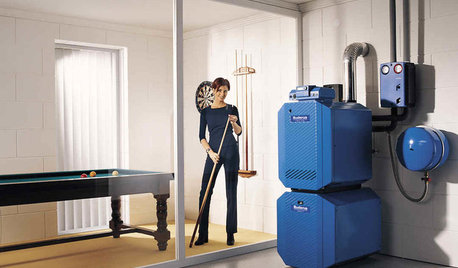

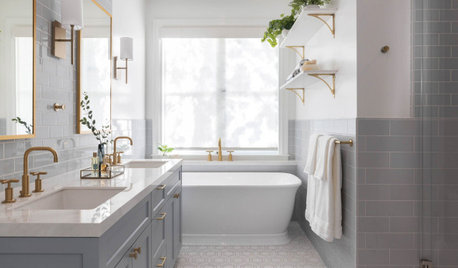
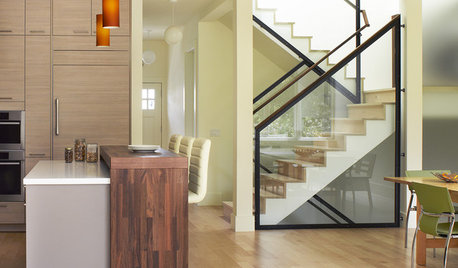

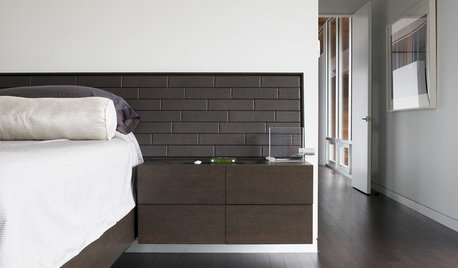
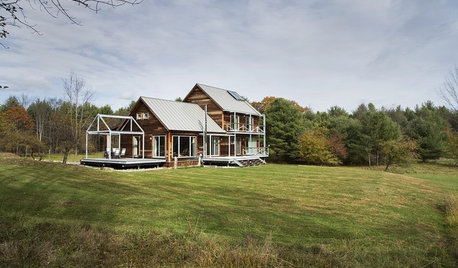
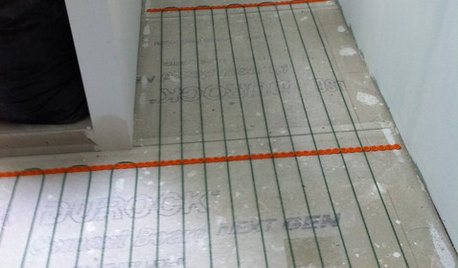
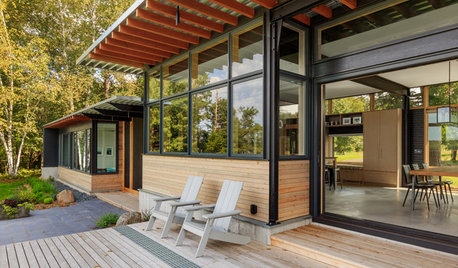
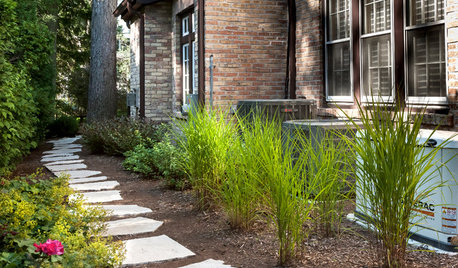







don21